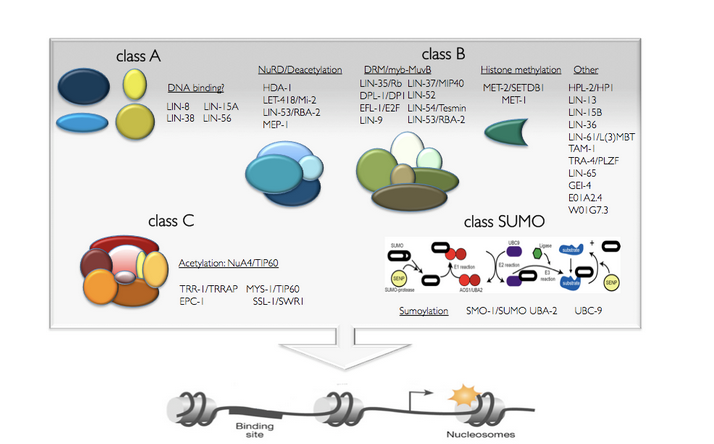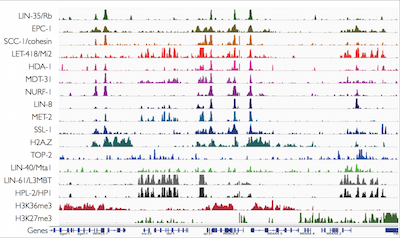Chromatin regulatory proteins are the workhorses of genome management, directing local transcription activation and repression as well as larger scale regulation. This involves many integrated processes, including nucleosome remodelling, histone modification and replacement, the binding of specific factors to accessible DNA or modified histones, and the organization of chromosome regions into domains.
In addition to the importance of chromatin regulation for normal development, it has become increasingly clear that alterations in chromatin are associated with human diseases, including developmental defects, ageing, and cancer. For example, mutation of genes that act in chromatin regulatory pathways are recurrent in cancer, and drugs that target chromatin factors have shown promise in cancer treatment. However the mechanisms of action of few chromatin disease genes is understood. Deepening our basic knowledge of chromatin and its regulation and role in transcription is critical for understanding normal development and homeostasis, and has potential to impact research in human disease and influence therapeutic avenues.
To address these questions, we study C. elegans homologs of chromatin regulators important for human biology or disease, such as the Retinoblastoma/DRM complex and the NuRD histone deacetylase and nucleosome remodelling complex. We investigate the function of these proteins in transcriptional control and development using chromatin immunoprecipitation followed by deep sequencing, global mRNA expression analyses, genetic interaction screening, and other genetic and genomic methods.

